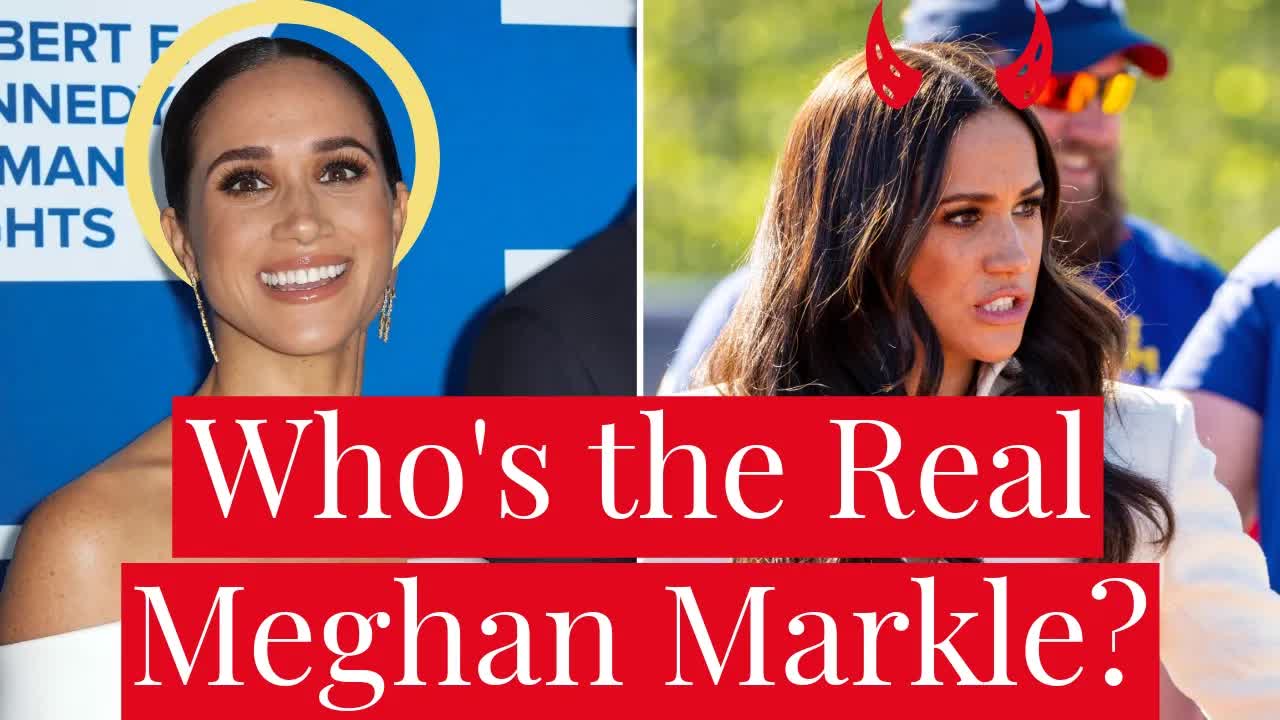Must Read
The Dual Faces of Meghan Markle: Angel or Demonic Boss?
In the world of celebrity and royal gossip, few figures spark as much debate and intrigue as Meghan Markle.
Recently, two sharply contrasting narratives have emerged regarding her character and management style.
On one side, she is painted as a nurturing leader, akin to Mary Poppins, while on the other, some former employees have characterized her as a “demonic boss from hell.” This dichotomy has left many scratching their heads, trying to discern the truth behind the headlines.
The confusion escalated when Markle attempted to reshape the narrative surrounding her, particularly in response to a piece published by The Hollywood Reporter that described her as an ineffective manager.
This article, which has gained considerable traction since its release, detailed how numerous staff members reportedly left her employ due to her alleged bullying behavior and poor decision-making skills.
In a bid to counteract this negative portrayal, Markle turned to Us Weekly, a move that many believe only exacerbated the situation.
The backlash intensified with The Daily Beast weighing in, citing former staff who labeled Markle as “demonic” and “psychotic.” These descriptions starkly contrast with the glowing reviews from others who claim to have had positive experiences working with her.
The stark differences in these accounts have led to widespread speculation about which version of Markle is closer to reality.
Amidst this chaos, current employee Lindsay Hansen offered a thought-provoking perspective: sometimes, two conflicting narratives can coexist.
This notion invites us to consider that Markle may embody both the angelic and the demonic traits attributed to her by different individuals.
It's a complex picture that reflects the multifaceted nature of human behavior, especially in high-pressure environments like the royal spotlight.
The initial controversy traces back to a Hollywood Reporter article published on September 12, which highlighted the exodus of staff from Markle's team.
The piece was straightforward, suggesting that employees were leaving because they found her difficult to work with.
As the story gained momentum, Markle's attempts to clarify her image through Us Weekly only seemed to fuel further scrutiny.
In this follow-up, Markle's team presented a more flattering account of her leadership style, claiming that she fosters a supportive work environment.
Yet, the anonymous sources from the original report painted a very different picture, describing her as someone who belittles her staff and is resistant to feedback.
This inconsistency has only deepened the public's curiosity about what really goes on behind the scenes at Archewell.
Interestingly, some current staff members have spoken out in defense of Markle, stating that their experiences were positive and meaningful.
However, the language used in these testimonials raises eyebrows.
Phrases like being “warmly welcomed” do not necessarily guarantee a fulfilling work environment.
It leaves room for interpretation, suggesting that while initial impressions may be positive, the overall experience could still be fraught with challenges.
Moreover, Markle's management approach has been criticized for lacking professionalism.
Reports of her sending frantic emails at odd hours and throwing tantrums have led to her being dubbed “Duchess Difficult.” Such behavior has not only tarnished her reputation but also led to questions about her suitability as a leader.
As the narrative unfolds, it appears that Markle's attempts to rehabilitate her image have inadvertently drawn more attention to the criticisms she faces.
The media frenzy surrounding her has become a double-edged sword, revealing both her perceived strengths and glaring weaknesses.
Observers note that her business ventures, including the much-anticipated American Riviera Orchard, have faced setbacks that raise further doubts about her managerial capabilities.
The persistence of these conflicting narratives suggests that Markle's journey is far from straightforward.
While some former staff members describe her as a “narcissist,” others insist that she is a dedicated and hardworking individual.
The reality, it seems, lies somewhere in between.
This ongoing saga highlights a broader issue within the realm of celebrity and leadership—how public perception can be shaped by both personal experiences and media narratives.
As Markle continues to navigate her role in the public eye, it remains to be seen whether she can reconcile these differing portrayals and emerge with a clearer, more unified image.
Ultimately, the question lingers: which Meghan Markle is the real one?
The kind-hearted mentor or the tyrannical boss?
As more stories emerge and the media continues to dissect her actions, the truth may be more complex than either narrative suggests.
The duality of her persona is a reminder that in the world of fame and fortune, appearances can be deceiving, and understanding the full story often requires looking beyond the surface.






























